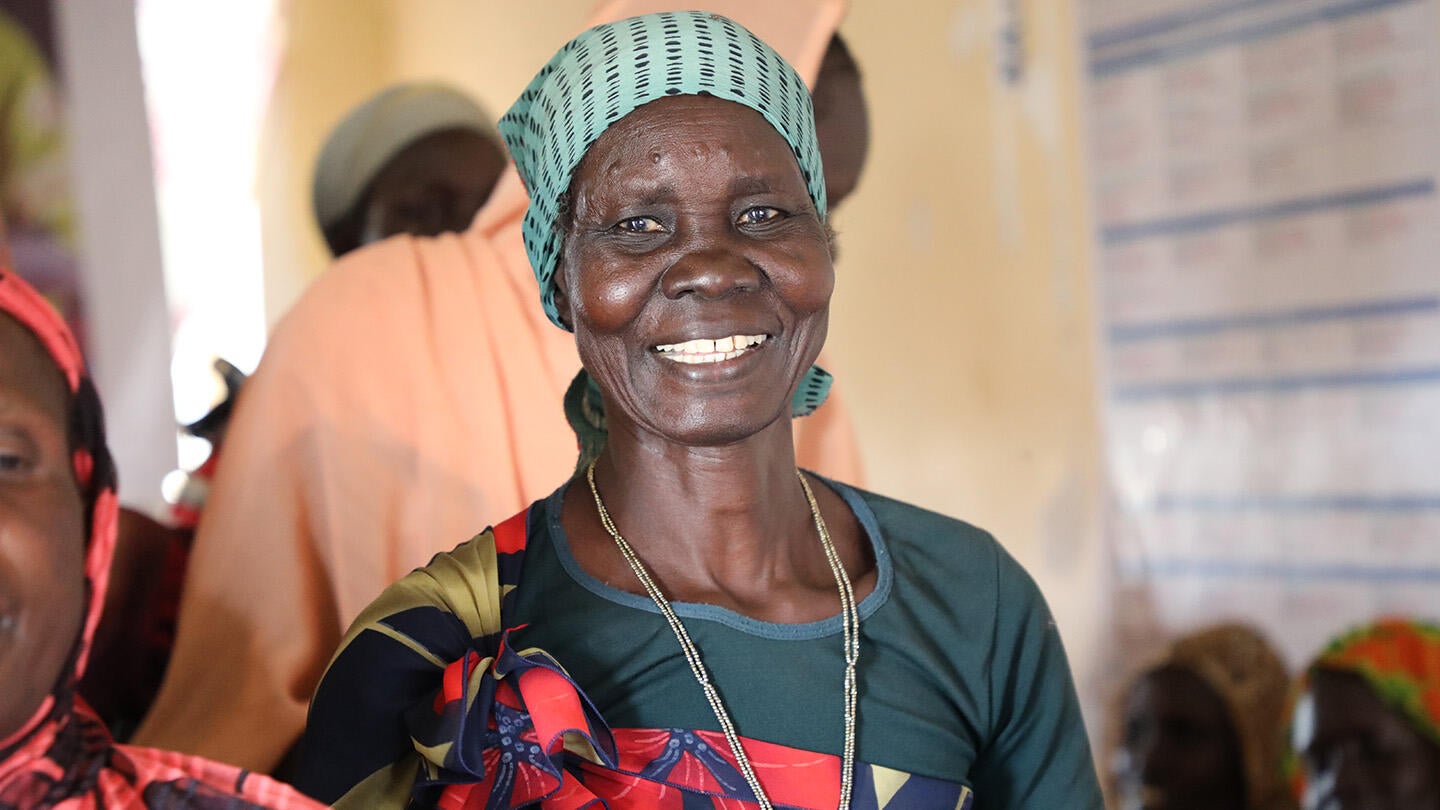Renk – Upper Nile, Close to two years since the outbreak of Sudan crisis, Sudanese refugees and South Sudanese returnees continue to flock in South Sudan through Renk and other border points of South Sudan.
Mary Kak is mother of 7, she fled the Sudan crisis mid last year following heightened fighting there, her journey to Renk was that of perseverance as she had to endure many days of travel by foot for safety. The mother of 7 who first fled South Sudan in 2013 crisis to Khartoum said she and her family encountered numerous roadblocks manned by armed men enroute to SouthSudan.
Mary 55 originally from Kodok, Fashoda County in Upper Nile said upon return from Khartoum, life was not easy as she was traumatized but through information from her peers and also through awareness, she was convinced to visit the Women and Girls Friendly Space (WGFS). While at the WGFS she received psychosocial counseling, awareness sessions on how to report cases of gender-based Violence and enrolled for skills training where she was taught how to make beads, weaving and baking.
“We are in a safe place all together as one family; we sing, dance, laugh and cry together. No tribal differences – no Dinka, no Shiluk and no Nuer” Mary says. “The beads we make from here are sold and we make money out of it, but the most important thing is information and knowledge sharing on GBV and other ailments” Mary added.
Refugees and returnees rebuilding their lives and restoring hope at the WGFS just like Mary, Salma Osman Ibrahim, a 28 –year old mother of three is another returnee that fled to South Sudan towards the end of last year. Salma bakes Zalabia (doughnuts) at the Renk Transit Center and is able to make a living by selling in the small market of the transit center.
With thanks to UNFPA funding to the WGFS in Renk, Salma was trained and provided with start-up package to aid her baking business. Salama can now breath as her financial woes are easing and beyond baking, she has been psychologically supported and aware of services available for survivors of rape that she shares with fellow women and girls. Thanks to the empowerment and awareness sessions she received from UNFPA.
“Since I fled my home in Jebel Aulia in Khartoum due to the war, establishing myself with nothing at hand has not been easy, but with the baking skills and support, all I can say is Alhamdulillah. I can now smile, I make 50,000 - 60,000 SSP (10$) in a day. This is really contributing to my life, and I can now support my family”, Said Salma
About four thousand (4,000) women and girls receive services at the WGFS ranging from psychosocial support, skills training and financial empowerment to overcome daily challenges. UNFPA has also supported distribution of 1,500 Dignity Kits women and girls fleeing the crisis including those from the host community in Chemedi, Bobonis and the Transit centers.
Crisis after crisis on the bodies of women and girls
In addition to the effect of the war, climate shocks also contribute to take a heavy toll on the lives of these women and girls exacerbating sexual exploitation and gender-based vulnerabilities affecting the quality of life, putting women and girls at constant threat to lose lives especially in poor resourced or absence of infrastructure. Renk which is the major transit site has borne the brunt of this all as in times of dry spell and rainy season. The situation of women and girls in the transit center becomes so harsh with poor hygiene which makes one wonder management of menstrual hygiene, protection of women and girls against sexual violence, and access to critical life saving health services during complications.
It is worth noting that in times of disasters, women, girls, and children are the most affected and their needs are normally not catered for. Gender-based and sexual violence remain a threat to crisis-affected populations; especially for women and girls exposed to risks when conducting their routine activities for a living like firewood collection to feed the family.
As women and girls pay an unacceptable price in crises and live in fear for losing their life, the dire situation in South Sudan in a wake-up call for urgent action to provide protection and life saving services that are crucial. UNFPA remains committed to working with partners to ensure that their sexual and reproductive health needs are not overlooked which leads to devastating consequences.


